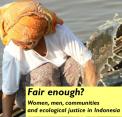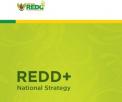- Home
- About
- Campaigns
- Regions
- Themes
- Agrofuels
- Climate justice
- Coastal communities and fisheries
- Disasters
- Economy & debt
- Energy
- Foreign investment
- Forests & forest fires
- Human rights
- Indigenous Peoples
- International Financial Institutions
- Land and food security
- Laws & regulations
- Mining, oil & gas
- Plantations
- Politics & democracy
- REDD
- Regional autonomy
- Transmigration
- Water and dams
- Women
- Publications
- Links
- Contact
Campaign
Region
- Indonesia (30)
- Sumatra (10)
- Kalimantan (6)
- Sulawesi (1)
- Maluku (1)
- Papua (8)
- Europe/UK (7)
- International (15)
Newsletter articles

DTE publications







